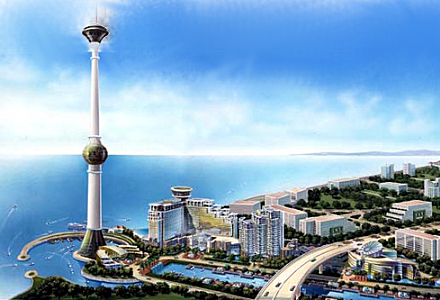 Some people may have scoffed at the Philippines’ ambitious goal to be the second biggest gaming hub in Asia, but at least one casino mogul believes that the country has the resources to pull it of.
Some people may have scoffed at the Philippines’ ambitious goal to be the second biggest gaming hub in Asia, but at least one casino mogul believes that the country has the resources to pull it of.
Melco Crown co-chairman Lawrence Ho knows what he’s talking about when it comes to the casino industry and his belief that the Philippines is more than capable of doubling its gambling revenue to $4 billion in the next few years should be taken with far more than just a grain of salt.
Ho is confident that with the right infrastructure in place, the country could easily hit $4 billion in gambling revenue in the next couple of years. The caveat, though, is that aforementioned infrastructure, or more specifically, the current tax issue between Pagcor and the Bureau of Internal Revenue.
In order for the Philippines to accomplish its goal of hitting its target revenue, a palatable tax agreement should be made among all parties concerned that will not dig too much into the bottom line of casino developers and operators. “A lot of it would depend on how regulators and (the) government support this industry,” Ho told Bloomberg during a recent interview in Manila.
Macau’s $38 billion in revenues is out of the question, that much everybody can agree on. But Singapore, which reported earning $6 billion in revenues, is in play, so as long as a tax infrastructure is in place that works for all parties concerned. The current issue in the country between the BIR on one side and Pagcor, together with all of its licensees on the other, is an unsettling predicament that could undermine the country’s ambition to be the second biggest gambling hub in the region.
The issue between the parties concerned involves a proclamation made by the tax bureau earlier this year, essentially ordering all casino operators to pay a 30-percent income tax on their gaming earnings, a surprising move considering that Pagcor and its licensees were previously given exemptions from paying any income tax.
The sudden, if not surprising, shift in tax rules caught the entire industry by surprise, casting a palpable sense of unease from the licensees who fear that the new rules could discourage foreign investors from moving ahead with their planned investments into the casino projects they tied themselves to.
Philip Tulk, a Hong Kong-based analyst at Standard Chartered Bank, echoed those sentiments when he told Bloomberg: “A higher income tax could discourage investors to further invest or even complete the casino projects they previously planned to, thus it could reduce the country’s appeal to draw gamblers.”
But Tulk, like a lot of other analysts that are plugged in to the casino industry in the Philippines, believes that an agreement will eventually be reached that will be amenable to all parties involved, especially to the casino operators.
As one of the foreign investors that have projects in Manila’s Entertainment City, Ho is confident that a resolution will come sooner than later. After all, he’s putting a considerable amount of his money on the Entertainment City project he has with Belle Corporation.
You don’t dig deep into your financial well without understanding where the money’s going to and how long it’s going to take you to recoup your investment. The Melco Crown co-chairman remains bullish on the Philippines and is steadfast in his belief that the country is on the precipice of becoming a major player in the Asian casino scene, tax issues notwithstanding.






